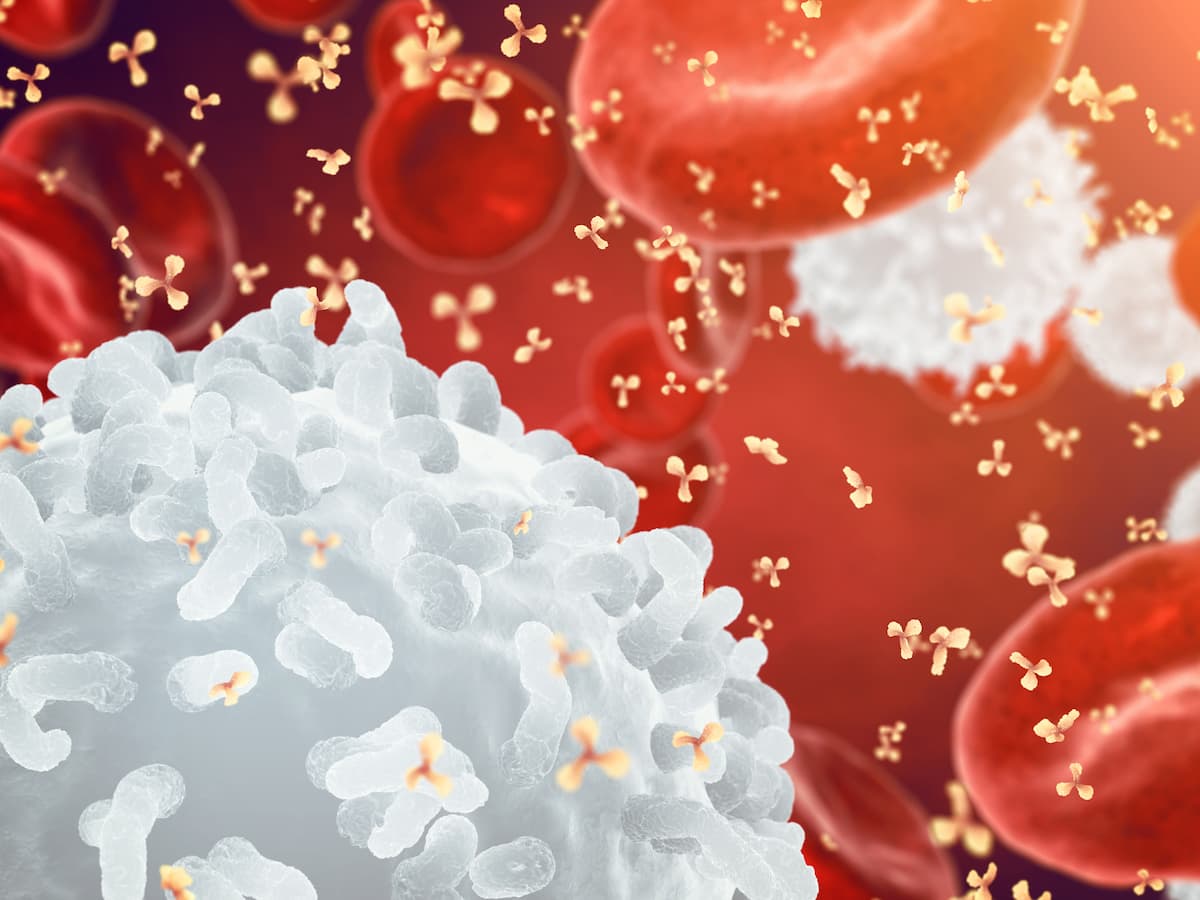LYL314 Yields High, Durable Response Rates in Later-Line LBCL Therapy
LYL314 elicited a complete response rate of 72%, with 71% of responses lasting for 6 or more months in patients with large B-cell lymphoma in the third or later lines of therapy.
LYL314 elicited a complete response rate of 72%, with 71% of responses lasting for 6 or more months in patients with large B-cell lymphoma in the third or later lines of therapy.

LYL314, an autologous dual-targeting CD19/CD20 chimeric antigen receptor (CAR) T-cell product candidate, showed robust clinical responses in the third-line or later treatment of patients with relapsed or refractory large B-cell lymphoma (LBCL) in a multicenter phase 1/2 trial (NCT05826535). The developer, Lyell Immunopharma, shared these results in a press release.1
It was previously reported that LYL314 was granted the regenerative medicine advanced therapy and fast-track designations by the FDA in this indication.2,3
With a median follow-up of 9 months among efficacy-evaluable patients in the third or later lines of treatment, the overall response rate (ORR) was 88% (n = 22 of 25) and the complete response (CR) rate was 72% (n = 18 of 25), with 71% (n = 10 of 14) of those patients remaining in a CR for 6 or more months.
With a median follow-up of 5 months for efficacy-evaluable patients in the second line of treatment, the ORR was 91% (n = 10 of 11) and CRs were achieved by 64% of patients (n = 7 of 11), with 100% (n = 7) of those CRs lasting until last assessment, of which 3 CRs were at 6 or more months. In patients with primary refractory disease, 70% (n = 7 of 10) achieved a CR.
It was noted in a webcast hosted by the developer that with currently approved anti-CD19 CAR T-cell therapies, approximately 50% of patients in a third-line or greater setting achieve CRs, 40% with a CR remain in it at 6 months, 30% do not respond, and 50% progress or die within 6 months.4
“Based on the LYL314 data to be presented at the International Conference on Malignant Lymphoma and my personal experience treating patients in the clinical trial, I believe that LYL314 has the potential to provide differentiated benefit for patients with relapsed or refractory LBCL in both the CR rate and durability of response,” stated trial investigator Akil Merchant, MD, associate professor and codirector of the Lymphoma Program at the Samuel Oschin Cancer Center at Cedars-Sinai Medical Center, in the press release.1 “We look forward to completing enrollment in the ongoing single-arm pivotal trial evaluating LYL314 in patients in the third- or later-line setting.”
A total of 51 patients with diffuse LBCL (DLBCL), primary mediastinal LBCL, high-grade LBCL (HGLBCL), grade 3b follicular lymphoma, and transformed follicular lymphoma (tFL) who were naive to CD19 CAR T-cell therapy and received at least 1 prior therapy were enrolled in the trial. Prior to LYL314 infusion, which was given at 100 x 106 CAR T cells (n = 49) or 300 x 106 CAR T cells (n = 2) on day 0, patients were eligible for optional bridging therapy consisting of 30 mg/m2 of fludarabine and 500 mg/m2 of cyclophosphamide for 3 days. Patients were not required to undergo CD19/CD20 screening for trial enrollment.
The median age of patients in the second line of treatment was 69 years, and for those in the third or later lines, it was 65 years; 35% and 21%, respectively, were 75 years or older; 59% and 68% were male; 59% and 71% were White; 71% and 71% had an ECOG performance status of 1; and 65% and 41% had stage IV disease at study entry. LBCL histology was DLBCL in 59% and 62%, HGLBCL in 12% and 12%, and tFL in 18% and 15%.
The trial’s objectives included ORR, CR rate, duration of response, and safety and tolerability.
Regarding safety, cytokine release syndrome of grade 1 occurred in 22% of patients, grade 2 in 35%, and grade 3 or higher in none. Immune effector cell–associated neurotoxicity syndrome (ICANS) of grade 1, grade 2, and grade 3 or higher occurred in 6%, 2%, and 14%, respectively; the median time to resolution of ICANS was 5 days. There were no deaths related to LYL314 therapy.
The cohort of patients in the third or higher lines of therapy has expanded into the pivotal PiNACLE trial, which will enroll approximately 120 patients.
“Based on these robust data, and our recent End of Phase 1 meeting with the FDA, we have initiated PiNACLE, a single-arm pivotal trial of LYL314 in patients with large B-cell lymphoma in the third- or later-line setting, and remain on track to initiate a pivotal trial to evaluate LYL314 in the second-line setting by the beginning of 2026,” said Lynn Seely, MD, president and CEO of Lyell.1
References
- Lyell Immunopharma announces positive new clinical data demonstrating high rates of durable complete responses from the phase 1/2 trial of LYL314 for the treatment of aggressive large B-cell lymphoma. News release. Lyell Immunopharma. June 17, 2025. Accessed June 18, 2025. https://tinyurl.com/4cnmz4c2
- Lyell Immunopharma receives regenerative medicine advanced therapy (RMAT) designation for LYL314 for the treatment of relapsed and/or refractory large B-cell lymphoma. News release. Lyell Immunopharma. April 15, 2025. Accessed June 18, 2025. https://tinyurl.com/3p2xk6f2
- ImmPACT Bio granted FDA fast track designation for IMPT-314 in patients with relapsed or refractory aggressive B-cell lymphoma. News release. ImmPACT Bio. May 15, 2023. Accessed June 18, 2025. https://tinyurl.com/2s42ud32
- Lyell Immunopharma announces positive new clinical data demonstrating high rates of durable complete responses from the phase 1/2 trial of LYL314 for the treatment of aggressive large B-cell lymphoma. Lyell Immunopharma. June 17, 2025. Accessed June 18, 2025. https://tinyurl.com/mebwtd2c
Highlighting Insights From the Marginal Zone Lymphoma Workshop
Clinicians outline the significance of the MZL Workshop, where a gathering of international experts in the field discussed updates in the disease state.